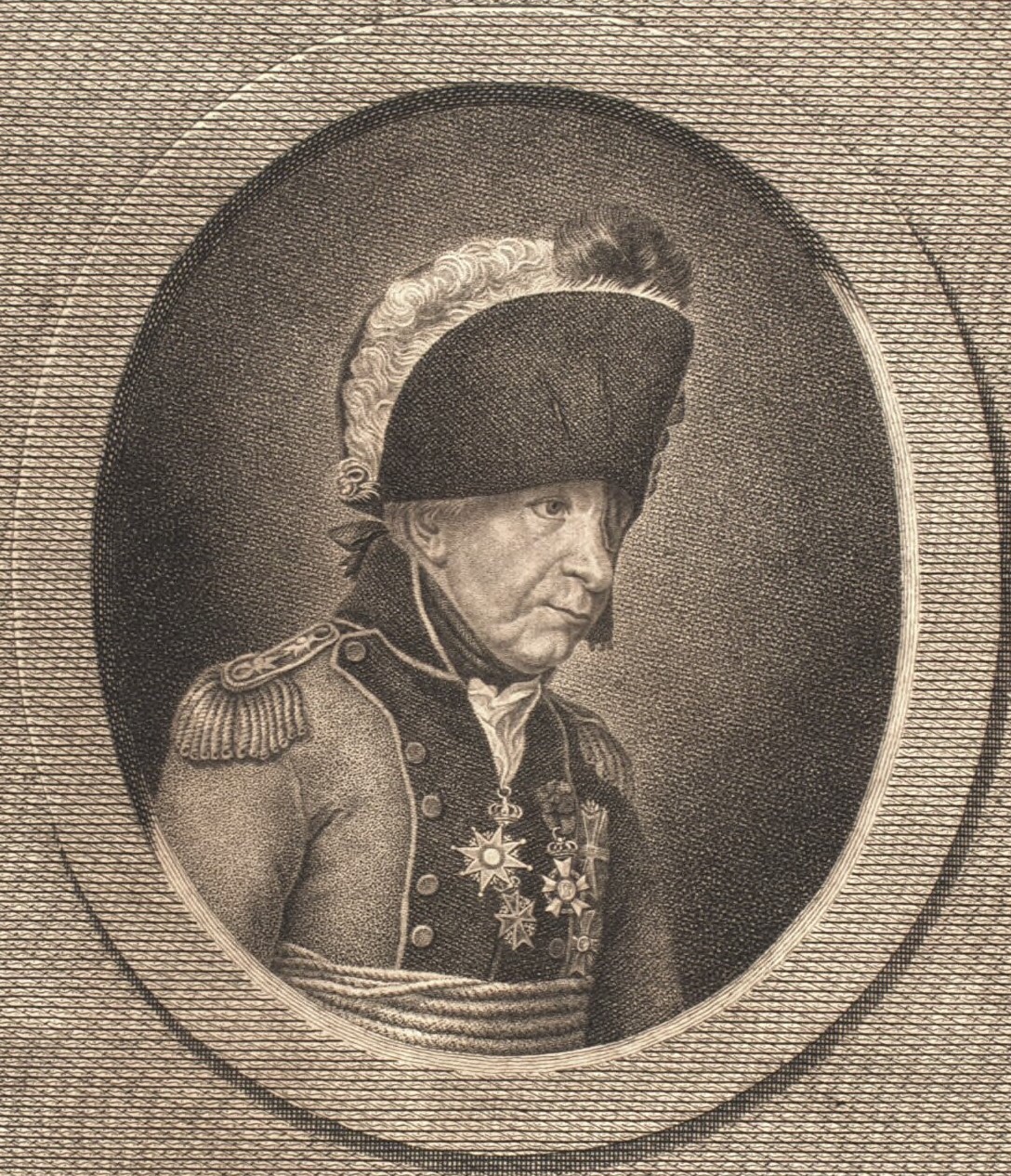Johann Ewald
| Johann von Ewald | |
|---|---|

Print of Ewald in his Danish general's uniform
|
|
| Born |
20 March 1744 Kassel, Hesse-Kassel (present-day Germany) |
| Died | 25 June 1813 (aged 69) |
| Allegiance |
|
| Service/branch | Army |
| Years of service |
Hesse-Kassel: 1762–1788 Kingdom of Denmark-Norway: 1788–1813 |
| Rank | Lieutenant General |
| Commands held |
Schleswig Jäger Corps |
| Battles/wars |
|
| Awards | Grand Cross of the Order of the Dannebrog French Legion of Honor Dutch Order of the Union Order of the Dannebrog |
Schleswig Jäger Corps
Schleswig-Holstein Battalion of Light Infantry
Military command of Hamburg
French Revolutionary Wars
Napoleonic Wars
Johann von Ewald (20 March 1744 – 25 June 1813) was a German military officer from Hesse-Kassel. After first serving in the Seven Years' War, he was the commander of the Jäger corps of the Hessian Leib Infantry Regiment attached to British forces in the American Revolutionary War. He arrived with his troops, first serving in the Battle of White Plains in October 1776. He saw regular action until his capture at Yorktown in 1781. In 1788, he joined the Danish Army, where he rose to the rank of lieutenant general; he also served as governor general of Holstein during the Napoleonic Wars. Following his American war experiences, he wrote an Essay on Partisan Warfare (German: Abhandlung über den kleinen Krieg, a widely read treatise on guerrilla warfare. He also kept a journal during most of his time in North America that has since become a valuable resource for historians of the war.
Johann Ewald was born in Kassel, the capital city of the Landgraviate of Hesse-Kassel, on 30 March 1744. His father Georg Heinrich Ewald was a bookkeeper, and his mother, Katharina Elisabeth, was the daughter of a Kassel merchant. Both parents died while he was relatively young, and he was raised after their deaths by his grandmother. In an effort to dissuade the 14-year-old Ewald from a military career, he was taken to see the battlefield after the 23 July 1758 Battle of Sandershausen. Ewald's response to the scene was "Oh, how happy are they who died for their country in such a way!" In 1760 Ewald enlisted in the Regiment Gilsa, and was immediately involved in combat. Serving first in the army of Duke Ferdinand of Brunswick, the regiment saw action at Corbach and Warburg before besieging Kassel in 1761, then held by the French. Ewald was wounded during this siege in March 1761, and was promoted to ensign for his bravery. Returning to action in June, his regiment saw further action in 1761 and 1762, notably at Wilhelmstal and the second Siege of Cassel in 1762.
...
Wikipedia
